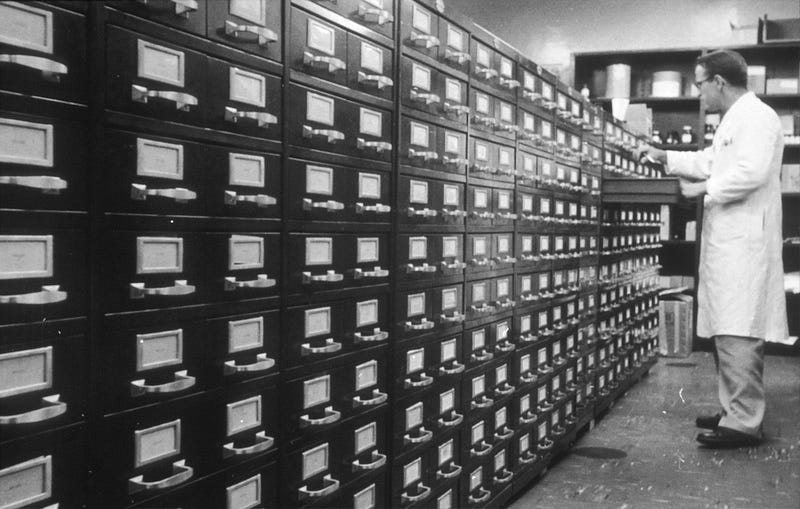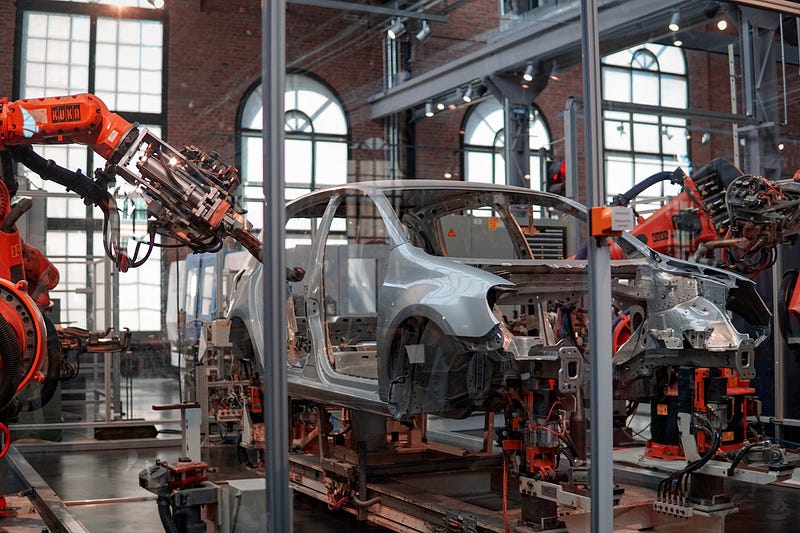A Discussion of Bourgeois Equality Chapter 12 “‘Accumulate, Accumulate’ Is Not What Happened in History”
Last chapter McCloskey explored reasons the word “capitalism” should be replaced with a term that captures the source of the Great Enrichment, such as “trade-tested betterment.”
Now she continues along the same path in this chapter because she says capitalism implies a centrality of the role of capital in the process. Yet she tells us why accumulation of capital is not the source of the Great Enrichment.
Therefore, I suggest “the age of betterment” or a similar phrase to describe the modern world, not “the age of capitalism.” There’s nothing automatic about growth of capital in “capitalism,” though since 1776 and especially since 1848 many people have believed there is. (p. 105)
Accumulation of Knowledge is the Key, not Capital
Imagine an undeveloped economy that is producing all their clothes by hand. If it discovers or acquires knowledge of a machine that assists in the production of cloth, then they can increase the output of cloth.
The machine is capital. Adding one machine increases output. Adding two machines increases output further, but likely at a slower rate. Continuing to add machines will increase output but only to some point.
Taken to the extreme, if every worker has a machine, adding one more is not going to help.
This simplified example shows how adding capital can be the source of increasing output up, but only up to a point. That point where more capital does not increase output is called the Steady State.
Where does the capital come from? From savings. That is, some of the output that is produced needs to be consumed to keep us alive and some needs to be saved and invested to produce capital so we can keep our output up.
Before we have reached our Steady State, adding capital increases our output which allows us to increase our savings since that comes from our output.
More capital means more output means more savings means more investment means more capital means more output and so on.
This process is called Catching Up Growth.
But increasing savings, and thus investment, is not a key to growth once we are at the Steady State.
Why? Because machines and capital wear out. That is called depreciation.
Steady State is where the amount of capital being invested is equal to the amount being depreciated.
That is the story of the simple Solow Growth model. If you are interested and like graphs, this video is a great explanation of this model.
The Solow Model and the Steady State | Marginal Revolution University
Remember our simplified Solow model? One end of it is input, and on the other end, we get output.What do we do with…mru.org
Looking around you can see that developed countries are not stuck at 0% growth so how can I explain why we are not at Steady State?
Because capital accumulation only helps growth when you are underdeveloped. To continue growth after achieving the steady state, you need to improve your productivity — the amount of output you get from a given level of capital and inputs.
How do we do that?
Better ideas, or what McCloskey is calling knowledge.
Knowledge increases our productivity. This kind of growth is called Cutting Edge Growth.
Again, if you like graphs, you can see this model illustrated in this video.
The Solow Model and Ideas | Marginal Revolution University
According to our previous videos in this section, the Solow model seems to predict that we’ll always end up in a steady…mru.org
But the point of discussing this Solow growth model is to illustrate McCloskey’s point that “capitalism” implies capital is the key. And we can see in the simple Solow growth model that capital accumulation cannot explain continued growth.
Only better ideas and knowledge can.
Thus, the Great Enrichment is due to a change that encouraged the creation and adoption of better ideas.
The novelty was not the accumulation of capital but the accumulation of knowledge, protected by the newly accumulated ideology of the Bourgeois Deal. (p. 104)
Why this Matters
Trade has been around for thousands of years across the globe, and you can also see that in different times and places capital has been accumulated
Yet none of those previous times or places saw the immense growth we have enjoyed in the past 2 centuries of the Great Enrichment.
McCloskey notes that financial accumulation of wealth by a Bill Gates or a John D. Rockefeller,
…can grow at rates far above normal, if in a time and place of betterment that permits and honors the bourgeoisie, a business-admiring civilization. Before its coming, the big piles of financial capital, such as Spain’s, were regularly dissipated in aristocratic posturing financed by taxes on the periphery. (p. 105)
McCloskey is noting that we have had economic systems in other times and places that have generated wealth, but they did not use the wealth productively.
I have written about something similar discussed in a book I am now using in my graduate classes, The Evolution of Economic Systems.
Dr. Clark explains this phenomena by defining 3 types of economic systems: market-centered, state-centered, and community-centered.
The market-centered systems are various types of capitalism (sorry, that is the word he uses!), and only capitalism has both the incentives to create wealth AND use it productively.
State-centered systems can direct the use of resources productively and create wealth, but there is no incentive to use the wealth productively. Often it is used up in wasteful elite consumption or endless wars.
Conclusion
No automatic machinery of accumulation got turned on in 1760. (p. 107)
It was something else.
Recognizing we are in the “age of betterment” means recognizing we need to protect the process of knowledge generation and implementation.
McCloskey identifies 3 threats to continuing our age of betterment.
- Capitalism is often characterized by a single-minded profit seeking motivated by greed. This can lead to calls to move away from the market-centered system that rewards knowledge to a state-centered system that historically does not use wealth productively.
- The elites often have a snobby attitude towards the Bourgeoisie, sneering about their vulgarity. And yet the age of betterment exists because of the Bourgeois Deal discussed in chapter 3 that unleashed economic growth through allowing them economic freedom and liberty.
- The Bourgeois themselves have mistakenly focused on neo-liberal profit seeking as the only goal.
The classical 7 Virtues included prudence, justice, temperance, courage, faith, hope, and charity. McCloskey observes the focus on profits above all else is putting one virtue, prudence, above all others. Unchecked prudence could deteriorate into the vice, greed.
If the Bourgeois considered justice, temperance and charity in their actions, greed would be blunted. Likewise, a push to tell the elites to display justice, hope and charity towards the Bourgeoise would blunt their disdain.
A society that focuses only on prudence, forgetting the other 6 virtues, will contribute to an erosion of the age of betterment that has brought us the Great Enrichment.
Reference: McCloskey, Deirdre Nansen, 2016. “‘Accumulate, Accumulate’ Is Not What Happened in History,” Chapter 12 of Bourgeois Equality, The University of Chicago Press.




